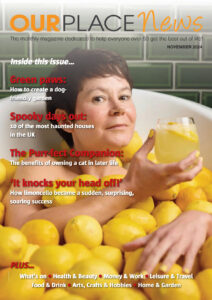From where to go for medical help and how to keep tabs on your medication to how to reduce sugar in your food, there’s an app for you.
 1. Change4Life
1. Change4Life
This app is designed to show quickly and easily how much sugar is in food and drink. You just use the camera in your phone or tablet to scan the barcode on the product and it’ll show how much sugar it contains per pack and per 100g. You can keep track of the last 10 products scanned, making it easy to compare items in the supermarket. It is early days for this app- for example, Heinz baked beans weren’t listed, while tomato ketchup was- but as more products are added to the database the more useful it will become.
2. First Aid by British Red Cross
Excellent, easy-to-follow app with lots of information. Gives simple and potentially lifesaving advice, including diagrams, on what to do in a range of emergencies, including allergic reactions, bleeding, broken bones, burns, choking, diabetic emergencies, head injuries and heart attack. You can also download a Baby and Child version, and can test your first aid knowledge.
3. mediLexicon
A medical dictionary with more than 3400 medical terms, explained and cross-referenced, with colour illustrations. Search for anything from A for abdomen to Z for Zygote, and if you don’t know the exact word you can just put in a few letters and the search feature will come up with options. You can also go back into recent searches.
4. Patient.co.uk
Gives access to more tan 900 patient information leaflets about health and specific medical conditions from ‘a knocked-out tooth’ to ‘you and your anaesthetic’. It will also give you the location of nearby medical services including dentists, GP’s, pharmacies, opticians and hospitals, but this finder facility is England-only. It’s easy to navigate and is packed with information.
5. MyMedRec
A portable up-to-date health record, keeping all your health information in one place, which can be shared with doctors, pharmacists or anyone involved in your health care. It allows you to keep track of medicines that you or your family are taking, records when medicine was taken, and offers dose reminders, reminders of prescription refills and medical appointments and so on. You can also record allergies, blood pressure, cholesterol, health care providers and any other personal health-related notes and you can add family details, too.
6. FoodSwithUK
Scans the bar-codes of packaged foods to identify those high in salt, fat and sugars and suggests healthier alternatives for more than 90,000 products. It rates each item for four things-total fat, saturated fat, salt and sugar- using a traffic-light colour- code system with red for high, amber for moderate and green for low. It’s especially useful for people with coeliac disease or gluten intolerance, high blood pressure, heart disease or kidney disease.
7. Diabetes Logbook (mySugarDiabetesDiary)
Designed for both type 1 and Type 2 diabetes, it has colourful, easy-to-read screens and allows you to log and track all your information including blood sugars, meals, insulin, activity and so on to keep your health on track. Easy to update an the move and keeps all the information in one place.
8. BHFPocketCPR
The British Heart Foundation app provides real-time feedback and instructions on hands-only CPR if someone is in cardiac arrest. A video with footballer-turned-actor Vinnie Jones shows you how to do CPR and your phone can measure the rate and depth of your compressions, telling you if you need to do the compressions faster or slower, or whether you should push harder or softer. There’s a children’s video, too , plus a link to call 999.
9. FitterFotness
Calculator and Weight Tracker Easy to use, this handy app calculates your BMI to show if you are over weight, and also your body fat and waist to hip ratio. You can set weight loss targets, see your daily calorie needs according to the level of exercise you do, and track you progress on a graph.
10. My Medication Passport
Another app to help you to take control of your medication. You can record details of any medication you are prescribed, the name of the medicine, the date of the prescription, how you take it and how often and in what quantity/strength. The app will also prompt yo to say why any medication had been changed. This information can then be arranged by date or by medication so a doctor, pharmacist or carer can see at a glance your medical history.
(Story source: Choice)

